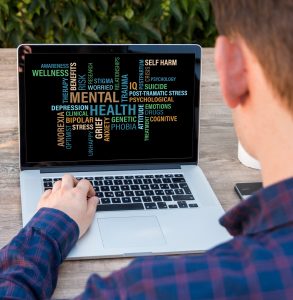 John called his parents one night and told them he was coming home from college. He couldn’t take the pressure and stress anymore. The college counselor said he was struggling with high anxiety. John’s parents were stunned. John had always been a high achiever. He wanted to go to college. They had no idea how he was handling the pressure of school until he called.
John called his parents one night and told them he was coming home from college. He couldn’t take the pressure and stress anymore. The college counselor said he was struggling with high anxiety. John’s parents were stunned. John had always been a high achiever. He wanted to go to college. They had no idea how he was handling the pressure of school until he called.
Anxiety is the most common mental-health disorder in the US. It’s easy to think that anxiety is not as serious as depression, but anxiety can cause distress and impairment. For some people, it is debilitating in that they can’t engage in life the way they would like. Sadly, anxiety is gripping our college students at alarming rates. It has now over taken depression as the most common reason college students seek counseling services.
So what is going on? Is it a fear of failure? Do young people need to live with their imperfections? Are they convinced they don’t measure up no matter how hard they try? Is there pressure to stand out and do just one more thing to add to their resume? Yes, to all the above. In addition, teens and young adults are anxious about school, teachers, family conflict, foods they ear, disease and news events. Safety is on their minds given all the terror and school shootings.
These issues can be grouped into a more general concern–dealing with life uncertainty and lack of control. No matter the challenges faced, one has to learn to roll with change, uncertainty and things that feel out of control. To do so, a person has to move through their discomfort rather than medicate, avoid or distract from it. And that means feeling uncomfortable and tolerating distress!
We don’t life to feel uncomfortable! But the treatment for anxiety is to expose yourself to the actually source of the anxiety and move through it. In other words, you confront your fears, not run from them. This type of approach is used by therapists and called exposure therapy. It is the most effective treatment for anxiety and fear. Facing fear retrains your brain to stop sending fear signals when there aren’t reasons to be fearful.
John’s parents wisely told him to stay at school and work with the school counselor. She was trained in exposure therapy and knew just what to do. A few weeks later, John called his parents to tell them the therapy was working. He was confronting his fears and anxiety, and exposing himself to situations that made him anxious. His confidence to handle uncertainty had grown. He finalized realized that avoiding anxiety was making his life worse.


